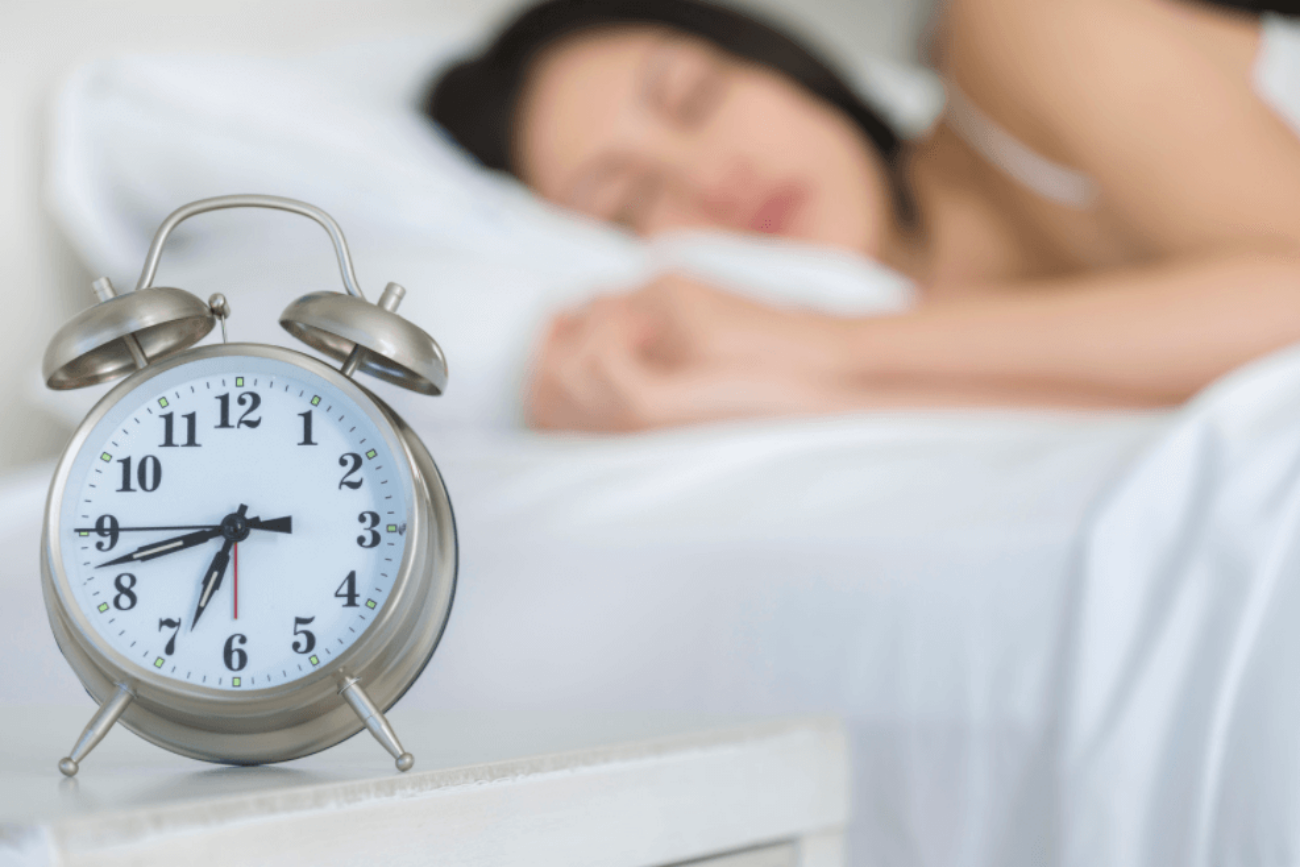How much sleep do we actually need? While the amount of sleep needed varies from person to person, the recommended amount for the average adult is 7-9 hours. According to the CDC, 35% of adults in the US are not reaching that minimum, Americans are sleeping less and less and our quality of sleep has also decreased year over year.
Sleep deprivation can affect everything from our ability to perform day to day activities, our appearance, our mental health, and increase the risks of health issues. For instance, poor sleep has been highly correlated to obesity due to a hormonal imbalance that causes us to have larger appetites and impair our metabolisms. A short sleep duration also puts us at risk of hypertension, strokes, diabetes, kidney disease and can impact our moods putting us at risks of irritability and depression.
Knowing how much sleep we need is the first step to improving our sleep hygiene, here are some tips to help us prioritize sleep and take steps towards a healthier lifestyle.
"While the amount of sleep needed varies from person to person, the recommended amount for the average adult is 7-9 hours. According to the CDC, 35% of adults in the US are not reaching that minimum."
Create the right kind of snooze fest.
Our circadian rhythm, better known as our internal clock, regulates our sleep cycle and repeats every 24 hours. Without having a proper schedule, our circadian rhythm can’t function properly. Whether it’s taking a nice bath, journaling, reading, or using relaxation techniques, create a routine of activities 30-60 minutes before bedtime. Having a nightly routine reduces late-night anxiety and allows our brain to see the activities as a precursor to sleep. Utilize your smart devices to remind you when bedtime is approaching, alerting you 30-60 minutes prior to bedtime.
Eat right, sleep tight.
A nutritious diet goes a long way when it comes to getting a better night’s rest. Foods that are high in sugar, carbs, and processed foods not only interfere with our weight, but impact our sleep as well as they change our blood sugar levels. It’s also important to monitor your daily intake of caffeine and alcohol, especially in the hours before bed. Eating heavy and spicy foods close to bedtime can also keep us up due to risk of acid reflux and digestion issues.
According to the Sleep Foundation foods that can help you get a better night’s rest include kiwis, tart cherries & tart cherry juice, malted milk, fatty fish, nuts like almonds & walnuts, and rice. While there isn’t a single food to make you fall asleep, a balanced diet filled with fruits and vegetables provides us with the nutrients and vitamins our bodies need, which ultimately enhance our quality of sleep.
Pillow talk.
Spending hours a day in our beds merits investing in a comfortable sleeping environment. Avoid the late night tossing and turning by purchasing high quality pillows, bed sheets, and a mattress that support a better night’s sleep. Keep your room cool and dark to create an optimal and comfortable environment to fall asleep in.
Technology do’s & don’ts.
According to sleep.org, 60% of Americans watch TV an hour within bedtime and are also doing internet-based activities in bed like browsing the web and social media. While using the television as a sleep aid seems to help some, it actually disrupts our quality of sleep. The television, tablets, and smartphones impact our internal body clock and melatonin levels. In addition, the stimulation from technology also keeps our brains alert and can also increase our stress levels. Lastly, those scrolling through social media accounts are 3x more likely to have sleep disturbances. Instead, take advantage of technology like sleep trackers, white noise and other sleeping support apps which can be instrumental to improving your sleep hygiene.
Another great alternative to using your devices is reading before bed as it’s been proven to reduce the time it takes to fall asleep, improve your quality of sleep, reduce stress levels, and helps us avoid the disruptive blue light that screens emit.
It can take weeks to develop a sleep routine, but staying patient pays off as sleep is essential to our overall quality of life. While these tips can certainly go a long way, they may not be enough for everyone. Depending on the severity of your case, seeing a somnologist or sleep psychiatrist/therapist might be the next step. Contact one of our expert Health Assistants for more information.
Inhale. We've got this. Exhale.
Understanding healthcare; with us, it’s personal.


